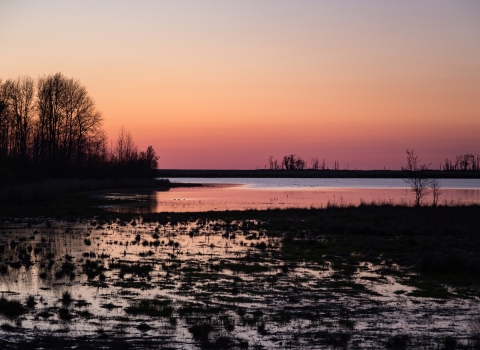DENVER - The U.S. Fish and Wildlife Service finds two plants, the Graham’s beardtongue and White River beardtongue, do not warrant protections under the Endangered Species Act (ESA). Scientific analysis revealed the threats to these plants are not as significant as believed at the time of the proposed listings. The conservation actions of our partners, including the state of Utah, also provided protections to the Graham’s and White River beardtongues.
Both Graham's beardtongue (Penstemon grahamii) and White River beardtongue (Penstemon scariosus var. albifluvis) are long-lived herbaceous plants found only in northeast Utah and northwest Colorado.
Since proposing the rule to protect these species in 2013, the Service has conducted additional research and monitoring to gather the best available science, along with a review of the conservation work being done by our partners. The conservation actions for these species provide protection for more than 45,000 acres of habitat on federal and non-federal lands, allowing populations to thrive. Our evaluation of the current condition of both beardtongues found tens of thousands of individual plants distributed across many populations. Both beardtongue species are widespread and abundant throughout their range, can withstand catastrophic events and adapt to changes within the foreseeable future.
The Service evaluated the potential threats of energy exploration and development, as well as the cumulative impacts of livestock grazing, invasive weeds, small population size and climate change climate change
Climate change includes both global warming driven by human-induced emissions of greenhouse gases and the resulting large-scale shifts in weather patterns. Though there have been previous periods of climatic change, since the mid-20th century humans have had an unprecedented impact on Earth's climate system and caused change on a global scale.
Learn more about climate change . While some threats have impacted individuals, those threats do not impact the entire species. The Service also projected the impacts to both species under various future energy development scenarios. Even under an unlikely high energy development scenario, the impacts of the threats to these beardtongue species would be limited.
The mission of the U.S. Fish and Wildlife Service is working with others to conserve, protect, and enhance fish, wildlife, plants, and their habitats for the continuing benefit of the American people. Connect with us through any of our social media channels: Facebook, Twitter, Flickr, YouTube, and Instagram.




